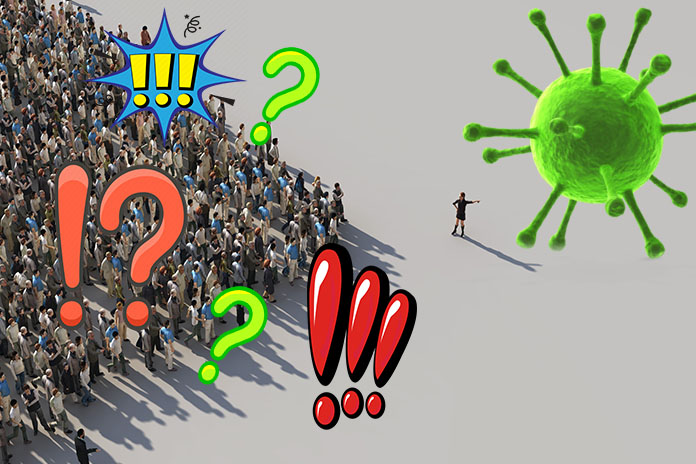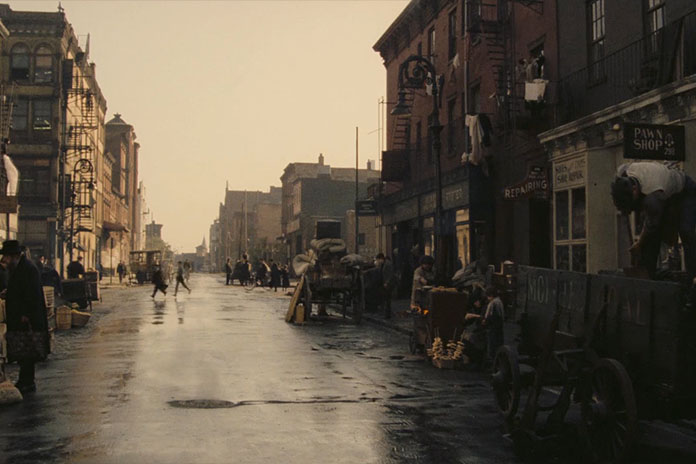
PROGRESS is impossible without change, and those who cannot change their minds cannot change anything.
Every day, for the past several weeks and months, I’ve thought of these words from George Bernard Shaw and wondered how on earth are we to move towards a better society. How are we to extract ourselves from the mess we are in and what will it take to move beyond the dogma of materialism and unmitigated consumption?
Coronavirus didn’t break our society; rather it amplified what was already rotten. And, with a political class that is hell-bent on serving a bankrupt ideology and securing re-election, the means to address our ills are seemingly out of reach.
With qualities like service, integrity and decency so far removed from our political process, and indeed, from the way our society is organised, can we hope for something better? Furthermore, why do we continue to implicitly forgive such a morally abhorrent system?
Perhaps Bertrand Russell said it best: “The fact that an opinion has been widely held is no evidence whatsoever that it is not utterly absurd”.
Writer and philosopher, Krishnamurti said, “It is no measure of health to be well adjusted to a profoundly sick society”.
In this regard, it may well be a positive sign that so many of us feel profoundly ill at this point in time; feel deeply disconnected from the marketplace which constitutes our society today.
And while I keep recalling Brian Wilson’s words,”‘I guess I just wasn’t made for these times”, the fact is that we largely share the same delusions and don’t even realise that we are living in a world which does not serve us, which is dysfunctional, which is sick.
Searching For Material Happiness
In this state, it’s possible to believe, as Krishnamurti suggests, that we’re happy and mentally healthy because we share our mistaken values with those around us. In this sense we create a society that is, itself ill, and we consider ourselves healthy because we see our values reflected in our fellow citizens.
As the Buddhist practitioner and teacher, Bodhipaksa notes: “We keep thinking that the answer to our sense of existential dissatisfaction is to buy more stuff — gadgets, houses, furniture, shoes, clothes, cars”.
But what is the message in Ray Bradbury’s Fahrenheit 451? Is it that a society that hopes to thrive must encourage its citizenry to wrestle with ideas? More so, that a society which puts all its emphasis on providing people with a superficial sense of happiness is surely doomed.
Perhaps the root of our suffering lies in our obsession with happiness — every action, purchase, desire, interaction, thought and gift is perversely expected to lead to some form of instant gratification.
This is a terrible distortion of the human experience. To paraphrase Bob Dylan, “Who put such a high price on happiness anyway?”

What we absolutely know is that happiness results from living a purposeful and meaningful life and cannot endure in isolation of these values.
Ironically, searching for happiness is one of the chief determinants of unhappiness. It is why concepts like Freedom Day are a nonsense.
To quote U2 (who themselves borrowed from a well-established Buddhist saying), “You can never get enough of what you don’t really need”.
Somewhere along the road, we mistook happiness for pleasure and became addicted to it as if it could remain a constant and ever-expanding sensation. What a sure-fire recipe for misery and anxiety this has turned out to be.
Empty Happiness
Happiness without meaning and purpose is an empty vessel, reducing us to a constant evaluation of our lives against the criteria of: “Will this make me happy?” But the things that matter don’t just make us happy; they fulfill us and give us meaning and purpose, they cause fear and struggle and questions, they push us out of our comfort zones and, yes, they can also lead to profound contentment and growth.
ALSO READ: Cryptocurrency Trends
The problem is that we define happiness by meeting our individual needs, but the things that matter are more to do with service, and meeting other’s needs. It is rather sad, but doing things in the hope of attaining individual happiness never amounts to much and doesn’t really matter on a universal scale.
On the other hand, one person serving others, or giving to something bigger than “self”, can amount to something huge and deeply satisfying — this is because personal happiness is ultimately irrelevant to the planet, but an individual in service of another has the capacity to change the world.

Recently, I reviewed Sergio Leone’s Once Upon a Time in America and one particular scene evoked a real cognitive and spiritual dissonance. Set in a low socio-economic quarter of New York in the 1920s, was a scene of material poverty with all its attendant features of over-crowding, dirt and squalor. And yet, what perhaps ought to have evoked despair, instead, aroused just the opposite.
In many ways, their lives seemed preferable to mine, and not because they were poor, but in spite of their poverty. And I feel the need to stress this: not because of the horrors associated with the present-day Covid-19 pandemic. The people on the screen seemed to have hope; they had dreams, they imagined something better, they discussed ideas and perceived a world where social wrongs and inequality might be addressed.
As Bradbury alluded to, they wrestled with concepts beyond the acquisition of material things.
Frankly, I would take this over the comatose malaise we currently find ourselves in, where we are anesthetised into a complacency that is only mistaken for happiness.
Furthermore, the characters of the movie were interacting with each other; enjoying human connections.
Disconnected
Well before the pandemic emptied our streets, our lives had become virtual. In fact, I remember walking along Pitt Street Mall in Sydney, perhaps the single busiest place in the country, and after 15-minutes of sustained observation found myself recoiling in shock. Not one person was conversing face to face with another human being. Each and every person was either on a device or they were looking in a shop window for their next material fix.
Even before Covid-19 and, more-so now, the vast majority of our conversations, interactions and thoughts are virtual and centred around “things” or material objects. Simply, we are attached to things rather than to each other and we lead extraordinarily virtual lives.
What are we, if not the sum of our thoughts and actions? And, if our thoughts are only of things (and our actions centred around acquiring things), then I would argue that we ourselves have become “things”.
Perhaps this is the inevitable end-point of a consumer-driven society.
Blind consumption is the order of our lives and objects dictate our very way of living.
ALSO READ: What Makes The Peranakans Special?
The philosopher Baudrillard writes, “Just as the wolf-child became a wolf by living among wolves, so we too are slowly becoming functional. We live by object time; we live at the pace of objects, live to the rhythm of their ceaseless succession.”
In this sense, Baudrillard insists that the value of reality, truth and everything else, has accelerated towards obscenity, towards a kind of ecstatic proliferation. The history we are now living through is not one of progress, but of exhaustion.
How does this relate to our poor state of political leadership and navigating the Covid-19 pandemic? Einstein said, “We cannot solve our problems with the same thinking we used when we created them.”
The Vax Vexation
In New South Wales, we have been told that we will open-up the economy when 70% of those eligible to be vaccinated have had their double-dose. At this gateway, just over 50% of the NSW population will be vaccinated, leaving close to four million people who are not. This is concerning enough, but when one is double vaccinated, we are only 50% less likely to pass on the virus to others.
This means that double-vaccinated individuals (and I am one of them) still have around a 50% chance of passing on the virus to nearly four million people, mostly our children, who are too young to be vaccinated. These are not favourable odds, and certainly not the best basis for public health policy.
Not only is incentivising people to get vaccinated with the promise of getting back to the pub incredibly facile, it misses the point entirely.
I don’t care whether people have been vaccinated, I care that they are not carrying the virus. I care that they are not going to infect me and that I won’t, in turn, be putting my children at risk.
If we knew that everyone in the pub, restaurant, workplace, cinema, gym and so on had been accurately tested and was not going to spread the virus, then this might prove to be a more valid pathway to reopening the state and boosting economic activity in a safe way.
Rapid antigen testing, purpose-built quarantine facilities, proper border control arrangements, air extraction and filtration systems in our public and work places and consistent rules around mask-wearing and physical distancing, along with immediate, intense and short stay-at-home protocols to prevent spreading the virus among peoples are the safe and quick pathways to opening-up our society.
For us to endure and navigate this pandemic it was critical that the Federal Government did two things: Ensure our border protection and quarantine arrangements were air-tight and unite the country, that is, facilitate the process of bringing us all together and supporting each other, irrespective of what state we resided in.
Fair-weather Leaders
The lack of critical reasoning, the devaluing of truth and the jettisoning of intellect are all part-and-parcel of this new type of “magical thinking” — trickle-down economics will help the disadvantaged, vaccinations will restore freedom, offensive military capability will make us safer, reducing welfare will incentivise the disadvantage to find jobs, our alliance with the US will protect us.
As it stands now, with well over 1,000 new cases a day of Coronavirus being recorded in Sydney, our State and Federal Governments’ approach to this pandemic is questionable.
ALSO READ: Privileged Positions
The sad reality is that most people do not want to lead, they simply don’t want the moral responsibility for deciding what they ought to do.
Our current crop of political leaders likewise don’t want to lead; they simply want to be in leadership positions.
As such, they rely on ideology for their decisions and actions rather than weighing up the data, ethics, morals and practicalities of situations. They let their ideology do the leading for them. The real problem lies in, as Russell writes: “The fundamental cause of the trouble is that in the modern world the stupid are cocksure while the intelligent are full of doubt.”
Economist John Maynard Keynes, when accused of inconsistency on some policy, is credited with saying: “When the facts change, I change my mind. What do you do?”
The answer today, from our political leaders would surely be, “change the facts”.
This brings to mind a remarkable comment I heard recently, ’I’m entitled to my own facts!’ Welcome to our Brave New World.
The views expressed are those of Dom Meli, who runs his own business consultancy, People At Their Best, in New South Wales.





















